I’m sending out this round-up of my March reading before we get to May (barely) — I’ll take that as a win. Here are the books I read last month:
Maud Martha by Gwendolyn Brooks (1953; Faber, 2022):
This was the March pick for One Bright Book — you can listen to our conversation here or in your podcast app — and we had a lot of fun discussing it. The book is out of print in the U.S., and I’d love to know why. Do any of my readers know the story here? The book was recently reissued in the U.K., but not here. It’s too bad because the book is fabulous and would probably be popular to teach. It’s a novella about the life of Maud Martha Brown, a girl and then young woman from Chicago, told in vignettes that follow her from her school days into teen years and then marriage and motherhood. The book has a wonderfully entertaining narrative voice that sometimes sounds like Maud Martha’s own thoughts — occasionally slipping into first person — and sometimes hovers outside her, rendering her observations in lively, poetic prose. As the book goes on, the vignettes get more complex, or at least take up adult concerns, turning to the disappointments of adulthood and the social ills of racism and colorism. World War II begins. I loved how flexible and varied the narrative voice is; it’s by turns evocative, funny, angry, ruminative, philosophical. I also loved Maud Martha’s strength and self-love — she knows who she is even if the world around her doesn’t.
In a Lonely Place by Dorothy B. Hughes (1947; NYRB Classics, 2017)
I read this as part of Kim McNeill’s #NYRBWomen23 group on Twitter (you’re going to hear me saying that a lot — the group reading experience has been fabulous). It’s actually a reread for me; I read it back in 2012 for my mystery book group (which has been meeting since 2008!). What a wonderfully creepy book. Being in Dix Steele’s mind feels claustrophobic, much as being in Tom Ripley’s mind does, although of course Ripley came later (1955). Both books are written in that close third person that you might later swear is actually first person, until you go back and check. So many interesting things are going on here — a crisis of masculinity, nontraditional detectives, California car and beach culture, serial killers, former military men reintegrating into life back home (or not), strong female characters, unreliable narrators. Just be prepared to feel slightly ill as you read this, as though you are complicit in murders and might get caught. The book has that kind of power.
The Lincoln Highway by Amor Towles (Viking, 2021)
I read The Lincoln Highway for a book group at the college where I work. This was the first time I’d joined the group, mostly because it’s the first time they read a work of fiction — previous choices were of the business-y, self-help-y sort — and I’m glad I joined in, but their system of reading one book slowly throughout a semester with multiple meetings along the way didn’t work so well with fiction, particularly with plot-driven fiction like this one. I’d read 100 pages and then forget what happened until it was time to prepare for the next month’s meeting.
Anyway, this was enjoyable, a page-turner, with good characters and an interesting set-up. The book group liked it and our discussions were good. But it felt too neat to me, too slick, too well-crafted, maybe a little show-off-y. Towles is showing you that HE KNOWS HOW TO WRITE. It made me feel grumpy about mainstream American fiction, to be honest. Writers of this kind are clearly good — and also kinda boring.
I Have Some Questions For You by Rebecca Makkai (Viking, 2023)
If I had read this one in print instead of audio, it might have made me grumpy too, although I’ll never know for sure. It’s another well-written book — by which I mean competently and not flashily written — and it deals with contemporary topics (true crime, #metoo, podcasts) that are likely to be crowd-pleasers. It might have felt like a “good and entertaining but on a deeper level kinda boring” book in the mode of the Towles (although they are very different books), but on audio I’m less critical and I had fun with it. It’s a boarding-school novel, which I love (and that’s probably a crowd-pleasing topic too), and while the plot is slow-moving, the situation Makkai sets up — woman returns to the boarding school she attended to teach a class where her students decide to investigate the murder of her high school roommate — remained suspenseful and engaging the whole way through.
The Guest Lecture by Martin Riker (Grove Press, 2023)
I loved this book! To be honest, it freaked me out a little bit because Riker appears to know exactly how my mind works. That’s how it felt as I read his character Abby’s thoughts as she struggles with insomnia the night before she gives a lecture on John Maynard Keynes. That’s the whole book right there — Abby ruminating on her talk, on Keynes’s ideas and how misunderstood he is, on utopia and optimism, on her job failures and family worries. We hear big chunks of her talk — or at least one version of it, as she’s not entirely sure what she will say — and she practices it by using the memory technique of associating parts of her speech with different rooms in her house. The person she addresses as she practices is Keynes himself.
It was uncomfortable at times to feel so similar to Abby that her thoughts might as well be my thoughts (although I’m not as smart as she is and know nothing about Keynes or economics) and also uncomfortable to read Abby’s worries about society and the future, worries that are basically the same as mine. But it was also pleasurable to feel companionship with Abby in our worries. I felt like Abby was with me just as she felt Keynes was with her. I love books that make me feel less alone.
Intimacies by Katie Kitamura (Riverhead, 2021)
I listened to this on audio and thought it was great — I liked the spare, subdued, almost flat style of writing that foregrounded ideas instead of emotions. This is a book in part about emotions, but it seems to want to analyze them rather than make the reader feel them. As an excessively analytical person, I appreciate this. The protagonist is an interpreter working for an international court at The Hague. She finds herself having to interpret for a war criminal, which brings them uncomfortably close. She also has a relationship that’s on shaky ground and an obsession with the fallout of a violent crime that occurred near a friend’s home. She’s at The Hague on a short-term contract and isn’t sure she can stay or whether she wants to.
I love how Kitamura doesn’t mess around with titles: this book is about a range of intimacies, some intensely uncomfortable, some merely complicated. She sets out to explore what it means to be intimate and does exactly that. She’s also great at thinking about intimacy in the context of larger social and political forces.
The Widows of Malabar Hill by Sujata Massey (Soho Crime, 2018)
I’ve found myself saying “historical fiction isn’t really my thing, but I liked this book anyway” a few times recently, so maybe I should stop saying that historical isn’t my thing. I mean, it’s not going to be my preferred genre, but as with any kind of book, if it’s done well, I will like it. I read The Widows of Malabar Hill for my mystery book group, and I was surprised to find we all liked it. We are generally a tough crowd, especially with contemporary books, but this novel is a solid story — maybe not super exciting as far as the actual mystery, but a good tale about India in the 1920s. Perveen is working as one of the first female lawyers in Bombay, a job that comes with limitations because of her gender, but also some advantages: she is able to talk to the widows of Malabar Hill to investigate a murder when no men can. The novel tells the story of that murder and also Perveen’s backstory, and together it creates a vivid picture of the time and place.
A View of the Harbor by Elizabeth Taylor (1947; NYRB, 2015)
This was the second #NYRBWomen23 book for March, and it’s one of my favorites so far. I remember being underwhelmed by Taylor’s novel In a Summer Season around a decade ago, but this one hit me just right — it’s really, really grim but also sharp, absorbing, and darkly funny. It’s set in a small seaside town that has seen better days and begins when Bertram, a retired naval officer who plans at last to focus on his art, settles in. We meet other characters in town — a novelist and her two daughters, both of whom are complicated and difficult in distinct ways; the novelist’s best friend who is suspiciously close to the novelist’s doctor husband; a bed-ridden elderly woman who embarrasses and infuriates her daughters; a crushingly lonely widow who owns a waxworks display that no one wants to see.
The loneliness in this book! The town is so isolated, so decayed and left behind; the characters live in their memories of better times and wait longingly for summer visitors who show up in decreasing numbers. The older characters look for distractions — novel-writing, love affairs, alcohol — and the younger ones despair that anything interesting will ever happen or anyone new will come along. Thank goodness Taylor can be funny. Somehow she gets the tone exactly right — it’s really very sad but there’s enough variety and comic relief to keep you going. Taylor is so good at capturing the setting too. I feel as though I’ve visited the town myself, and won’t soon forget it.
Is Mother Dead by Vigdis Hjorth, translated by Charlotte Barslund (Verso, 2022)
After the International Booker longlist announcement, I started reading some of the longlisted books and Is Mother Dead was first up. I enjoyed Vigdis Hjorth’s earlier novel Will and Testament a year or two ago, and, as it turns out, I liked Is Mother Dead even more. It didn’t make the shortlist, unfortunately — I’m not sure what the judges were thinking — it’s so absorbing, so tricky, so disturbing, all in a story that’s relatively simple: a woman wants to make contact with her estranged mother, and doesn’t give up even when her mother fails to respond and her sister asks her to leave them alone. The daughter, Johanna, is an artist — an older woman herself with a son and grandchildren — whose art had, arguably, depicted her family in a poor light. This was only one of her “sins”: she also left her husband and moved to the U.S. with her artist lover, and, unforgivably as far as her family is concerned, she didn’t go to her father’s funeral.
We get the story from Johanna’s perspective — the whole story as she understands it including unsettling childhood events, her reasons for leaving her husband, her feelings about her art — and it’s not at all clear what we as readers should make of her. To what extent is she telling us the truth, or, if she’s telling the truth as she understands it, to what extent do we trust her interpretation? As her mother and sister continue to resist her attempts at reconciliation, she keeps pushing them. Why can’t they just give her a little bit of time? Why can’t they at least answer her texts?? The more she pushes, the more they resist, and the more she keeps pushing in return. Are they right to reject her, or are they being cruel and unreasonable?
The narrative style is obsessive and repetitive — Johanna goes over the situation again and again and again — but it’s never dull. Reading it made me feel uneasy, even a little guilty, as though I were the outcast myself. Utterly disturbing, totally enjoyable.
Three Steps on the Ladder of Writing by Hélène Cixous, translated by Sarah Cornell and Susan Sellers (Columbia University Press, 1994)
This book is brilliant. I need to either leave it at that or write a long essay about it, and I think I’ll (mostly) leave it at that. I read it with a mix of admiration, mystification, and pleasure. The book is part literary criticism (on Lispector, Bernhard, Kafka, among others) and part a philosophy of reading and writing that describes the kind of writing Cixous herself desires — intense, bodily, transgressive — and makes a case for language that works at the extremes of human experience and the limits of what can be said. I’ll be honest, she didn’t exactly make me want to read the texts she writes about, but I loved following the twists and turns of her thought.
I hope your reading life is full of great books! I’ll do my best to be back soon with April’s reading. Let me tell you, I’ve read some awesome books this month.





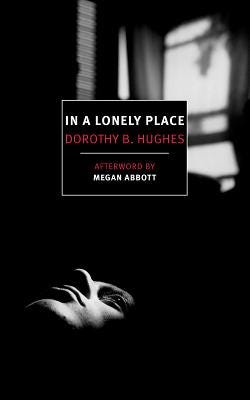
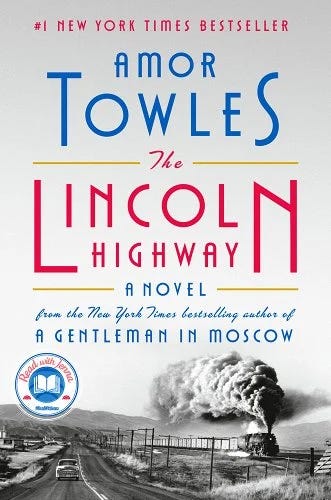


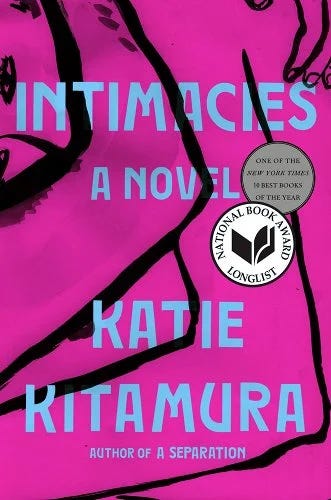
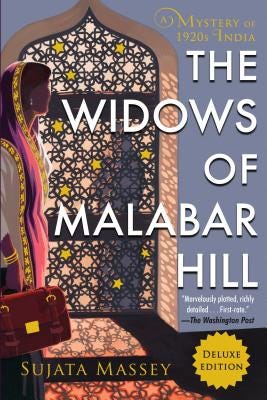

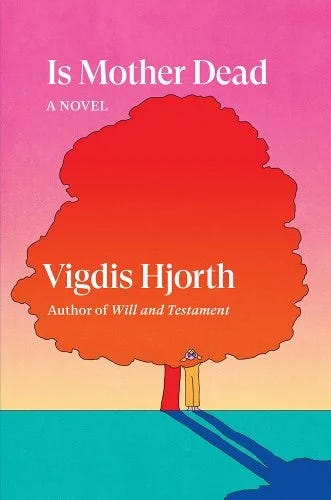

Thanks for saving me from getting a few I was contemplating, although adding a few I was not! I also much preferred Is Mother Dead and was disappointed it didn’t make the shortlist.
I want to read so many of these. Thank you for sharing your thoughts! I'm looking forward to this month's write up.